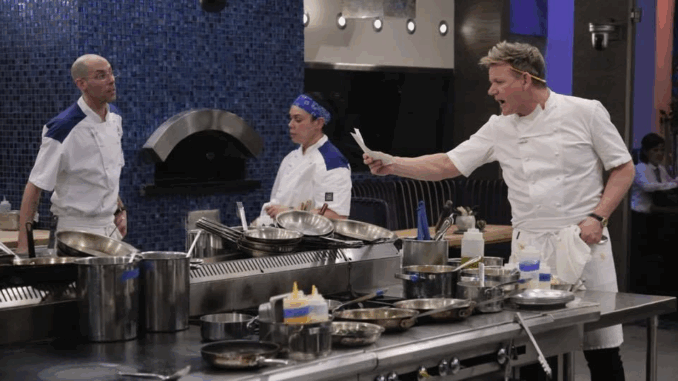
To the outside world, Gordon Ramsay is a culinary powerhouse—blazing through kitchens, building empires, and creating hit shows that millions binge-watch. But once the cameras stop rolling, what really happens behind the scenes? According to several former employees and collaborators, the reality is far from the high-gloss image seen on TV.
Over the years, whispers have circulated from chefs, sous-chefs, and production staff who worked closely with Ramsay. Some describe an environment of intense pressure, mental strain, and, at times, calculated humiliation. One former line cook who worked under Ramsay’s management put it bluntly: “He broke people down just to build himself up.”
Behind Ramsay’s public persona lies a well-oiled machine where perfection is demanded, mistakes are magnified, and loyalty doesn’t always guarantee security. Several staffers allege that working under his brand came with grueling hours, little praise, and a constant fear of public berating. “We were walking on eggshells,” one former maître d’ claimed. “If something went wrong—even a garnish out of place—it was like the world was ending.”
A chef who once appeared on one of Ramsay’s competitive shows revealed that many of the emotional outbursts viewers see are very real. “The yelling? The swearing? That’s not scripted,” he said. “He genuinely loses it. And they feed off it. Producers love it. But we didn’t.” In fact, that chef now refuses to watch any of Ramsay’s shows because they trigger memories of panic and anxiety.
Worse yet, several employees have spoken out about feeling disposable—used for ratings and then quickly cast aside. One former employee recalled being promised a long-term position after helping Ramsay launch a new location. “The cameras left, and so did the promises,” she said. “I was let go two weeks later.”
The most disturbing claims come from those who say Ramsay’s tirades weren’t confined to contestants or television kitchens. Some allege that even behind closed doors, he maintained a temperament that could turn toxic. “He can be charming when it suits him,” said a former assistant. “But if you cross him—or if something reflects poorly on him—it gets ugly fast.”

Even more troubling are the psychological effects former workers describe: burnout, insomnia, and emotional exhaustion. “You don’t just leave Gordon’s kitchen with experience,” one ex-sous-chef said. “You leave with trauma.”
And yet, few speak out publicly. Why? Fear. One anonymous source said, “People are scared of what happens if they go against him. He’s too powerful, too connected. You risk being blacklisted in the industry.”
Of course, Ramsay has denied many of these claims in past interviews, insisting that his approach is simply passionate and intense, not cruel. “I’m tough,” he once said. “But I care.” Still, as more former employees begin to share their experiences, a different picture emerges—one that suggests the price of working with Gordon Ramsay might be higher than anyone imagined.
Behind every plate served with perfection, there may be a team working in silence, under pressure, and in fear. And the world is now beginning to ask: Is it excellence—or exploitation?